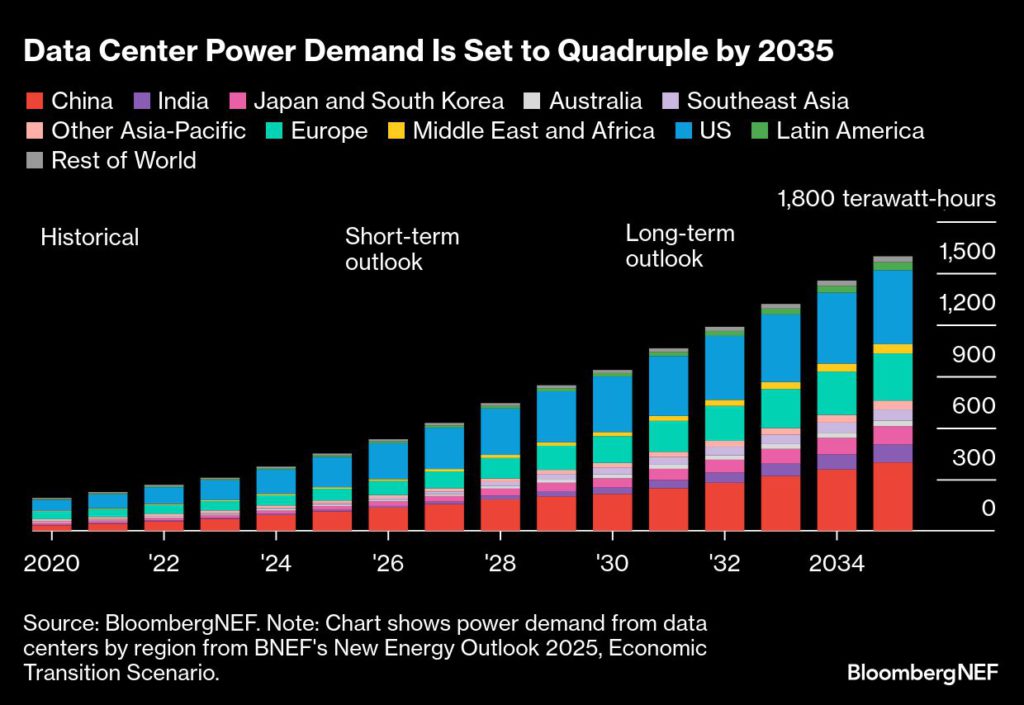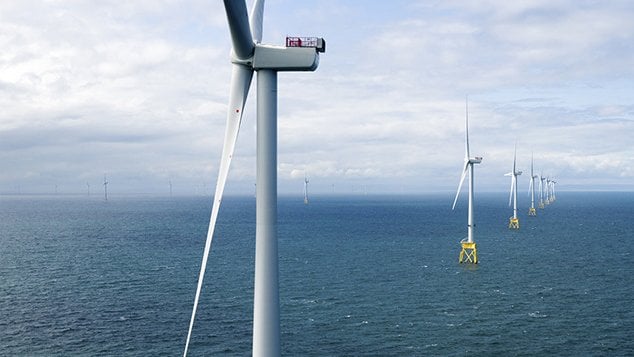Summary
A minimalist conceptual model of the state is presented in which the fundamental basis of state existence and continuity is the flux of produced resources between producers and the needed state apparatus, while contending with powerful domestic non-state actors and foreign challenges. External conditions that reduce per capita production threaten state continuity, and the state attempts to survive by responding. Every decision either destabilizes the state and creates vulnerabilities or stabilizes the state on a road to recovery. The model provides a general framework for making and evaluating state decisions. It also provides predictions for circumstances that lead to state failure. I conclude that long-term state survival is possible, while describing the structural and dynamic challenges that must constantly be overcome.
Basic conceptual model of the state
The state is a living hierarchical structure that manages itself and controls and extracts cooperation and resources from its subjects and from its environment. It can be healthy or sick, and heal or die. The said structure includes the subjects who produce and state agents who are leaders, administrators, lieutenants, soldiers, teachers, analysts, and so on.
A given state is typically robust enough to thrive for several generations. Typical modern period life expectancy at birth of a new state is one or more centuries before being incapacitated by chronic systemic liabilities (Fischer, 1996; Goldstone, 1991; Turchin, 2003).
The state apparatus (or “state” for short, depending on the context) derives its resources from surplus productive work of subjects (“taxation”) and via pillaging operations abroad. In other words, the energy that feeds the state apparatus (i.e., the agents, equipment and infrastructure composing its structural and leadership or managerial hierarchy) is the labour and extracted physical resources provided by its subjects and provided by its targets and holdings abroad.
The state thrives as long as the influx of labour and physical resources is greater or equal to the resources expended to maintain all of its parts. That is, the resources needed to feed and maintain all of its agents (administrators, lieutenants, soldiers, teachers, analysts, and so on), and to maintain its equipment and infrastructure.
Note that I am purposefully avoiding the language of money and loans. This is because all that matters in reality is the flow of resources. Money instruments for coercion and bribes, and that represent promises to pay back, are irrelevant in themselves. The state is able to balance the fluxes of resources or it is not. It continues to thrive and grow or it degrades and fails, irrespective of the paper concepts of “debt” and “savings”. From the state view, its “savings” are temporarily unused resources whereas interest payments on “debt” owed by the state represent sinks of resources, lost for fear of lender repercussions.
We must add that powerful non-state actors coexist with the state and compete to influence or control the state to their advantage while building and maintaining systems of parallel resource extraction. These are the elite, bankers, industrialists, landlords, organized criminals, and so on, who can eventually form coalitions and overthrow the state, or capture the state and manage it while retaining its organizational structure and facade.
As long as the state survives with its rulers in place, it will constantly address non-state actor challenges, in the same way that an organism, to the best of its ability, defends against aggressive parasites. In practice, the state will make many accommodations and reciprocal agreements with powerful non-state actors, rather than expend too much energy combating these persistent forces. In this way, the state will integrate many non-state actors into its hierarchical structure, thus keeping and securing control.
Regarding continued state stability, the state apparatus (agents), the subjects and the integrated non-state actors are embedded in a changing world. One gauge of changing overall conditions is population growth or decline, which in turn depends on many factors, including environmental capacity to provide resources and violent aggression (both intra-societal oppression and war campaigns). Population growth rate is associated with fetal, neonatal and infant mortality rates, and recently in many countries population growth rate is associated with fertility control and abortion rates. Individually experienced biological stress (Selye, 1956) undoubtedly plays a major role in fertility, as do societal norms.
However, contrary to suggestions by several authors, population growth or decline by itself does not destabilize the state. This can be demonstrated as follows.
From a theoretical perspective, let us say under constant division of labour and age structure conditions, if population grows at the same rate across social classes while each subject maintains its per capita capacity to generate resources, then there is no problem. The state simply grows accordingly and the balance of flows of resources (producers to state apparatus) per capita is maintained without friction. Likewise, if population decreases (at the same rate across social classes) while other conditions do not change, then the state only needs to downsize accordingly and the balance of flows of resources per capita is again maintained. Even population-growth-driven increased geographical distance between producer subjects and consuming state agents does not create significant transportation or distribution losses because the state apparatus can be optimally dispersed near production regions.
This is just to say that the total population quantum in itself does not affect or determine state stability.
What then can irreversibly destabilize the state?
A balanced flux of resources is the first consideration irrespective of size. Here is a general scenario under select constant conditions.
State stabilization under conditions of constant trade, technology, structure and population
For simplicity, we first keep as constant:
- the state’s ability to extract foreign resources (e.g., no wars),
- foreign trade,
- technology and resource-production practices,
- the state’s hierarchical (social) structure, and
- the population.
In this thought experiment, we then postulate that the capacity of subjects to generate resources diminishes because of external factors not controlled by the state.
Such external factors might include:
- diminishing soil fertility
- diminishing crop yields (environmental or ecological)
- diminishing individual health (biological, evolutionary or epidemiological)
- diminishing personal ability or motivation for productive work
- increasing scarcity and cost of extraction of resources from wells, rivers, mines, forests, wildlife…
We can imagine that these factors would be caused by external circumstances such as:
- unchanging ill-conceived agricultural practices
- extended drought conditions
- solar radiative output variations
- solar constant (perpendicular solar irradiation onto the atmosphere) variations
- variations in large-scale cloud dynamics (e.g., from geomagnetic changes)
- over-exploitation without exploration or regeneration
- volcanic eruptions of toxic substances (e.g., mercury) and dimming aerosols
- invasive spread of insects or other species, including parasites and disease-carrying animals
- development of allergic intolerance and nutritional deficiencies
- inadequate waste disposal and management
- external societal influences (including propaganda, inter-state exchanges, world religions) that affect the population age structure, work ethics, morale, nuclear family structure and dynamics, religious preoccupations…
and so on.
Note that the latter category “external societal influences” is not strictly external since it is societal. It will typically be a convolution between worldwide or multi-state changes and domestic contribution and response. Todd (2024) has explained the transformational impact of such a change on the Western world, leading to a dramatic reduction in the ability of the Western world states (vassal or not) to produce both competent agents and highly trained subjects.
If we relax the condition of keeping foreign trade constant, then another mechanism that in-effect diminishes the capacity of subjects to generate resources is for a trade deficit to result from external trading partners demanding an increased exchange advantage, which is equivalent to a state currency devaluation in economic terms. This occurs via trade intimidation or when the state’s resources produced for export become less desirable to the outside.
Overall, from all such factors, the consequences to state viability are potentially serious. The postulated reduced capacity of subjects to generate resources implies that less taxes can be leveraged from the subjects. As a result, if nothing else changes, then the flux of resources to maintain the state apparatus becomes insufficient.
The state can respond in any combination of various ways, including the following.
- The state can increase the taxation rate, meaning that it deprives the subjects of their usual personal resources in order to extract the needed quantum of resources to feed the state apparatus. With this policy, the subjects bear the cost of the externally imposed drop in resource production. This can heighten the resistance against taxation and diminish the subjects’ fitness to produce.
- The state can decrease resource delivery (aka salary) to its agents and expect them to continue performing the same tasks. With this policy, the state’s agents bear the cost of the externally imposed drop in resource production. This can increase internal opposition to the state hierarchy, thereby reducing service quality and dedication, and it can also reduce the agents’ fitness to perform their duties. This also thereby makes the state less able both to enforce taxation and address the constant non-state actor challenges.
- The state can increase demands (taxation) on the powerful non-state actors that coexist within the state (the said elite, bankers, industrialists, landlords, organized criminals, and so on). This has at least two effects: It produces destabilizing tensions within the systems of resource extraction controlled by the non-state actors; and it increases non-state actor opposition to the state. This in turn creates conditions for increased competition between non-state actors, likely leading to aggressive takeovers and larger and more powerful non-state actors. (E.g., smaller players with less defences may be regulated and taxed out of existence.)
- Taking the latter point further, the state can capture the holdings of powerful non-state actors (so-called nationalization) and dismantle non-state structures. This can provide a temporary influx of resources but it does not on its own solve the fundamental problem of resource flux imbalance caused by the externally imposed reduced capacity of subjects to generate resources.
- The state can sell off or lease its holdings (infrastructure, land, water, intellectual property, and so on) to non-state actors in exchange for resources. This, again, on its own does not solve the fundamental problem of resource flux imbalance caused by the externally imposed reduced capacity of subjects to generate resources. It only delays the inevitable. (Unless, of course, the new influx of resources is successfully used to make game-changing structural changes, such as technological developments or war, which are explored below.) Note that this sell off of holdings is distinct from so-called “privatization”, which is usually an outright giveaway ―under non-state actor pressure and manipulation―having the effect of expending state holdings and resources to contract out the depriving of subjects (point “1”) and of state agents (point “2”) of their usual resources.
The above picture, so far, under the given assumptions of constant conditions (above points “a” through “e”), means that the externally imposed reduction in capacity of subjects to generate resources, if the said reduction is too large and too prolonged, will lead to a breakdown or dissolution of the state.
As long as the external hardship conditions persist, the positive feedback reactions contained in the presented state responses (above points “1” through “5”) are such that the state system will experience a non-linear (accelerating) spiralling down into destruction, and only the accelerating rate of this downfall can be mitigated by state reactions.
State stabilization with unconstrained trade, technology, structure and population
Longer state lifetimes can be achieved, for example, in the following creative and adaptive ways, allowed by relaxing the above-postulated constant-condition constraints (points “a” through “e”).
One oft illustrated approach in history is for the state to raise an army and practice war, slavery and imperialism. If successful, this creates a larger state, an empire. However, the law of balancing fluxes of resources from subjects to the state apparatus (which now includes a maintained occupying army) remains the same, and such an empire can spiral down towards oblivion under a strong and growing pressure of reduced capacity of subjects to generate resources. An empire will generally have a longer lifetime than a small state, but the same law of balanced resource flux applies.
In this version of our hypothetical world which allows inter-state competition, wars and empire building, each state now has a defence burden as part of its apparatus, not only police and soldiers for domestic order.
In addition, having relaxed condition “d” (above) of a constant or unchanging social structure, the state’s administrative apparatus of service agents itself will be driven to grow larger in size and more demanding of resources through careerism and social-class greed, which must also be countered by the state.
Another approach to solving the deficient resource flux problem is for states to practice pillaging, which is the iconic resource supplementation strategy of the Vikings. Similarly, a large state can use protection-racket coercion, a popular method of the USA empire practised against its so-called allies through arms sales, military bases, corporate not-so-free trade and control of the world currency (Rancourt, 2019).
The now relaxed hypothetical rules (of our thought experiment) also allow improving technology and resource-production practices (point “c” above). Our hypothetical state therefore now has many new inventive ways to solve or alleviate its deficient resource flux problem (of externally imposed diminished capacity of subjects to generate resources).
The state, its subjects, and its agents can, under the newly considered relaxed constraints, respond in any combination, for example, of the following:
- develop improved and sustainable agricultural practices giving higher yields in both food quantity and quality (such as optimized livestock and crop rotations, improved water management methods, imported crop varieties, improved pest management methods, improved pollination strategies, and so on)
- increase, adjust or redistribute resource allowances to subjects in order to make them more productive (this is partly achieved through taxation policy and is akin to reducing poverty and unemployment, while improving living conditions and increasing individual fitness)
- develop improved state-run education and religious practices that increase national (state) identity and allegiance, while responding to worldwide changes in values
- develop improved intelligence systems for rooting out and discouraging subversion and corruption (thus keeping non-state actor ambitions and out-of-state infiltration more efficiently in check)
- adopt or adapt social and work-environment structures that strengthen state subject and state agent dedication and efficiency (such as highly stratified hierarchies with merit-based assignations) (Note that the Qing Dynasty (1644-1912) in China, for example, had a robust merit-based hierarchy for its elite educated state public service agents, see Turchin, 2023.)
- develop improved and novel state management practices to continuously optimize the mosaic of production specialization and agent duty specialization, adjusting compartment populations as needed, in ways that do not create destabilizing tensions
- develop improved education or mentorship structures and incentives to transmit and develop technical skills and practices
- develop improved energy use technology in both mechanization and transportation
- develop improved and sustainable mining and energy extraction and refinement technologies
- develop improved land use practices, including specialization based on regional climate and ecological conditions
- develop improved waste management strategies and sanitation practices
and so on.
In all of this, the state must have breadth and depth in its own increasing and institutionalized knowledge of state management principles and response strategies and tactics. This knowledge base must be state-owned and independent. It should not rely on or be corrupted by non-state actors or foreign influence.
In this way, creative and coordinated state responses to external factors that would diminish the capacity of subjects to generate resources can ensure that the law of balanced resource flux (from subjects to the state apparatus) is dynamically maintained. Surpluses can be used to reduce poverty and increase employment in socially rewarding work, for both subjects and agents, thus strengthening the state and reducing internal frustration against the state.
As long as the state project is alive in the minds and hearts of subjects and agents, then such creative state responses to external factors that would diminish the capacity of subjects to generate resources can continue without state collapse except for the most extreme external shocks.
Regarding keeping the state project alive in minds and hearts, at the psychological level the individual is expected to largely take their identity from their place in the state-structured and maintained social hierarchy. The state is aided by a large biological impetus to belong, as is the case with all social animals, such that early and continued state education and institutions (including state religions) that promote state ideology do well in this regard. With vassal jurisdictions (states in facade only) the empire may provide globalized generic ideologies (Rancourt, 2019). Individuals (especially males) also have a natural impetus to rebel and to seek more power if promotion within the established hierarchy is not forthcoming or sufficient, especially among the elite social classes (Turchin, 2023). This biological impetus drives the growth and multiplication of non-state actors, if it is not accommodated by the state.
In all of this, population need not increase or decrease, although an increased and integrated population in-effect increases the size and power of the state in the world. Likewise, loss of population can so diminish the state’s effective size as to make it more vulnerable to external pressures and threats. Furthermore, an artificial or accelerated increase in state population, if not integrated, can cause an impetus for war, both civil and predatory.
Presently, it seems superficially that large societies that have long historic traditions of intended merit-based state management hierarchical structures (Russia, China) and experience with long-lived recent empires (Tsarist Russia, 1547-1917; Qing Dynasty, 1644-1912) are able to apply the above responses well, whereas states that have more colonizing traditions (Western world) tend to stick with the colonizing model, using both military projection and financial predation.
Can the state survive?
Finally, regarding the cycles of state breakdown that are observed historically from the late-Middle Ages through the early modern period (Fischer, 1996; Goldstone, 1991), it appears that these collapses were due to state failures to cope, in the presence of large intra-state and inter-state pressures, in which competing non-state actors played major roles. There are two main striking features of these cycles, in the particular (mostly European and northern Asian) states studied by Fischer (1996) and Goldstone (1991).
First, state stability periods did not last much more than approximately 100 years (3 generations), up to approximately 200 years; again, for these particular states studied by Fischer (1996) and Goldstone (1991). It seems one century or so was long enough for threatening non-state forces to generate and cause severing changes, while exploiting external conditions such as trade conflicts and war. Elite greed and ambition was certainly a driver, and relative inflation of cost of basic commodities was always a factor (Fischer, 1996; Goldstone, 1991; Turchin, 2023).
These events suggest that the state, like the body of a living animal, has a finite and species-specific lifetime. Once enough damage is accumulated in the process of living, then a non-linear final failure (death) precipitously occurs. Has modern technology and civilizational management experience made a new species of state having a super immune system? It is doubtful. However, as argued above, unlike with the body of a living animal, state longevity is not limited by biological laws, only by unchecked internal rot, conquest or external catastrophic shock.
From another perspective, the state is a social dominance hierarchy and all social dominance hierarchies are subject to a dynamical law of spontaneous creep away from merit-based stratification towards competing mega-players and a totalitarian end point (Hickey and Davidsen, 2019). The loss of merit-based social stratification is the death of a state. The theoretically predicted death by dominance dynamics is postponed by optimal choices of the rules of social-status competition (Hickey and Davidsen, 2019), which the state can control.
Overall, statecraft is the most challenging human endeavour. Long-lived states and empires are possible, where longevity depends more on autonomous internal management than on external factors. Every legislative, legal and policy decision of the state either stabilizes or destabilizes, in the changing environment of external factors.
Second, state stability (and instability) periods were essentially synchronous across continental-scale geographic space. This led Goldstone (1991) to conclude that there must be an overarching common external factor driving all state instabilities: Population growth pressure on natural resources. I disagree. The approximate said synchrony of state stability and state meltdown can be induced by several strong coupling forces that include:
- inter-state trade
- inter-state technology transfer (including agricultural practices)
- war and territorial disputes
- climatic change (e.g., Little Ice Age conditions, 1300-1850)
- large volcanic eruptions
These coupling forces draw the states into a single dominance hierarchy which will then follow its own whole-system dynamics. Simply put, the states have synchronized cycles because they are integrated parts of one world.
This does not mean that an individual state is not self-determined. Only that its downfall is coupled to the downfalls of other states. Strong states follow their own paths. Failing states fail together.
Acknowledgement. I thank my colleague Dr. Joseph Hickey for a critical review of the paper and several suggestions regarding content and clarity.
References
Fischer (1996): David Hackett Fischer, The Great Wave: Price Revolutions and the Rhythm of History Oxford University Press, p. 536, ISBN 0-19-512121-X (Pbk.)
Goldstone (1991): Goldstone, Jack A., Revolution and Rebellion in the Early Modern World, University of California Press, p. 608, ISBN 0-520-08267-2
Hickey and Davidsen (2019): Hickey J, Davidsen J, “Self-organization and time-stability of social hierarchies.” PLoS ONE 2019, 14(1): e0211403. https://doi.org/10.1371/journal.pone.0211403
Rancourt (2019): Rancourt, Denis G., Geo-Economics and Geo-Politics Drive Successive Eras of Predatory Globalization and Social Engineering – Historical Emergence of Climate Change, Gender Equity, and Anti-Racism as State Doctrines /// (April 02, 2019) /// Available at SSRN: https://ssrn.com/abstract=5403798 or http://dx.doi.org/10.2139/ssrn.5403798
Selye (1956): Hans Selye, The Stress of Life, McGraw-Hill, p. 515, ISBN 0-07-056212-1
Todd (2024): Emmanuel Todd, La Défaite de l’Occident, Gallimard Publ., p. 384, ISBN 978-2073041135
Turchin (2003): Peter Turchin, Historical Dynamics: Why States Rise and Fall, Princeton University Press, p. 245, ISBN 978-0-691-18077-9
Turchin (2023): Peter Turchin, End Times: Elites, Counter-Elites, and the Path of Political Disintegration, Penguin Press, NY, p. 352, ISBN 9780593490501 (hardcover)
Kropotkin explains in the French edition of his Memoirs “The research that I carried out in the course of familiarizing myself with the institutions of the ...








